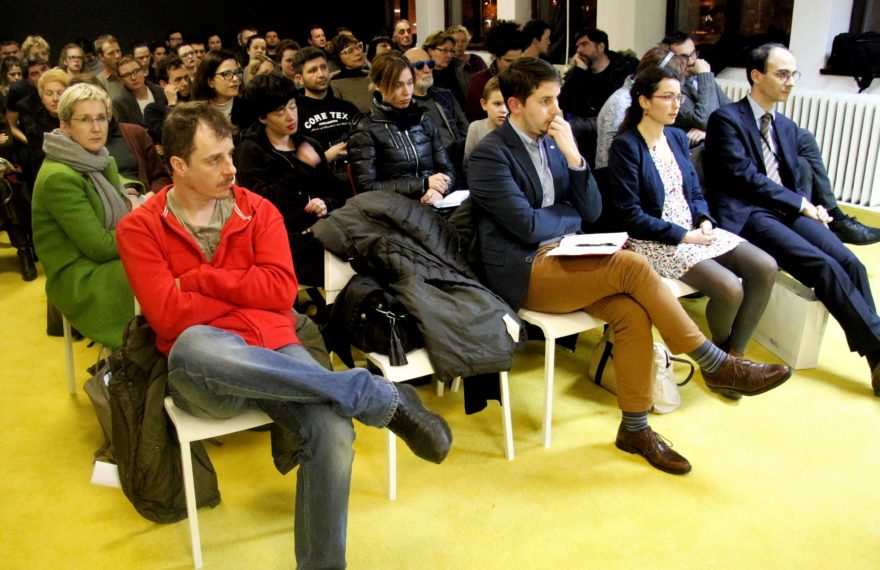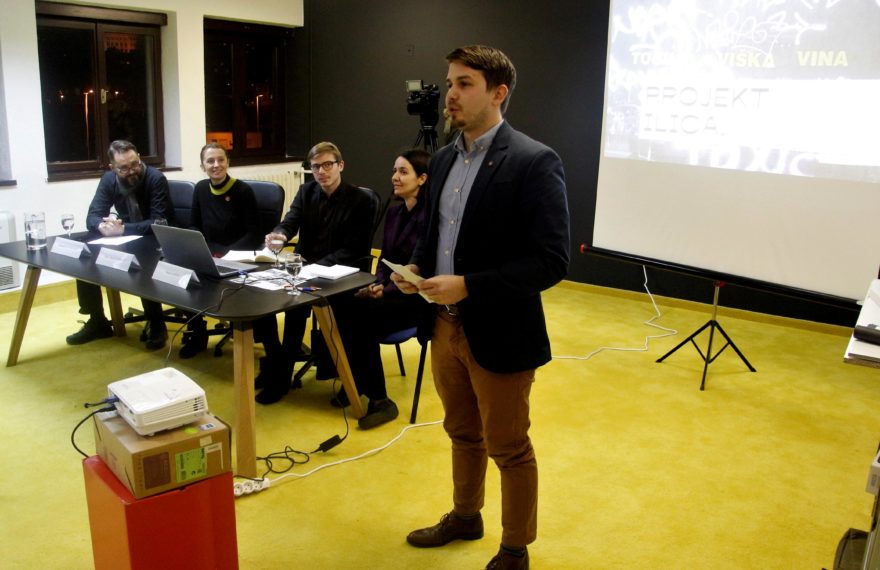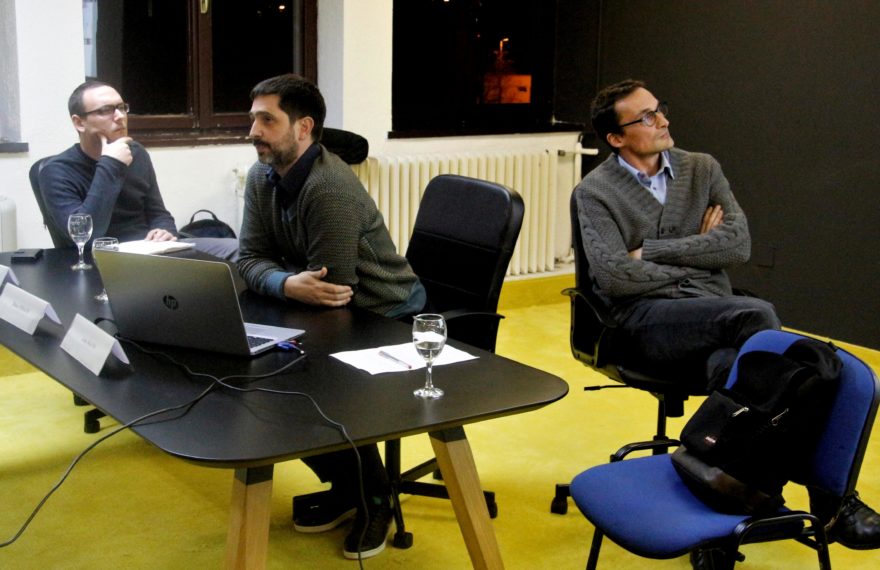The French Cultural Network founded the “Night of Ideas” programme last year in order to facilitate public discussions about new trends in perceiving the world.
Last year’s theme – A Common World – gathered 180 thousand participants in 80 cities over 52 countries. This year’s theme – Power to the imagination! – was inspired by the legendary 1968 when the walls of Paris were covered in writing “l’imagination au pouvoir!”.
The French Institute in Croatia included Rijeka 2020 – European Capital of Culture as the lead partner in this year’s Night of Ideas. The only Croatian programme which was part of this year’s global event was held on 25 January in the DeltaLab – Lab for Social (Re)invention of the Sweet & Salt flagship. DeltaLab, which was founded for developing urban and social interventions, hosted two public discussions on the topic of using abandoned spaces and implementing the concept of the city of the future.
Guilliaume Colling, director of the French Institute in Croatia, and Bernard Koludrović, programme manager (RiHub) in Rijeka 2020 – ECOC made introductory speeches in which they presented the importance of the Night of Ideas, and how it is connected to the Sweet & Salt flagship, i.e. the role of DeltaLab in developing cultural, artistic, social and urban interventions which could create a new dynamic along the Rječina river bank and the Delta.
The first public discussion, moderated by Aleksandar Ilić Battista, dean of the Academy of Fine Arts in Zagreb, presented two projects from Zagreb and Paris which involve reinventing abandoned urban spaces. “The Ilica Project” was presented by Ivana Nikolić Popović, president of the Croatian cluster of competitiveness of creative and cultural industries. The project involves mapping abandoned spaces around Ilica and connect them with potential users as part of a five-year project.
Simon Laisney, Plateau Urbain director, presented a project which involves 4000 square meters of space which includes abandoned or unused spaces in the Ile-de-France area. The spaces will be offered via public tenders to artists, associations, cultural and creative stakeholders and different forms of social entrepreneurship.
The case in Zagreb is an attempt to breathe new life into a depopulated part of the town centre, into areas which present social, ecological, health and financial risks for the immediate community. “The Ilica Project” mapped 76 abandoned spaces and will attempt to establish a community of users who will get involved in successfully developing innovative and creative solutions the utilisation and gentrification of spaces on Ilica.
The challenge in Zagreb is to continuously work on community engagement, establish criteria for using spaces, and develop the self-organisation of artistic initiatives, and Plateau Urbain covers these issues. The French example shows a successful initiative by the creative sector which connected various owners of abandoned and underused spaces and convinced them that it is more profitable to rent them to artists and creative professionals at a privileged and non-commercial price.
From July 2013 this example proved that transitional and temporary urbanism has to become a permanent practice because it facilitates the removal of the market value of the location, promotes gentrification and enables the realisation of socially relevant projects which could not be realised otherwise.
In both cases, the key factor was insisting on an open and approachable relationship towards citizens who then feel free and invited to come, offer their thoughts, ideas, suggestions and projects, which results in an organic user and audience community. This directly facilitates the strengthening of a sense of responsibility for spaces and programmes which ultimately leads to an increase of the potential sustainability of such a system.
The public discussion included Marko-Luka Zubčić, moderator and associate of the Sweet & Salt flagship, and speakers Luka Skansi and Dinko Peračić, both architects. Skansi emphasised the importance of elevating the urban life culture with all public employees who are currently devastating our spaces. He believes that transitional urbanism, as a response from the general public, encourages tactics of resistant utilisation of public spaces.
Nevertheless, such a system is not sustainable because it is not reasonable to expect citizens to continuously solve crises with their own inventiveness. On the other hand, Dinko Peračić promoted a dispersive city model which uses urban planning to deconstruct social stratification and as such presents an answer from the local governance level, in which urbanists and architects create free zones, spaces which encourage interaction, dialogue and research. In both cases, we can see the influence from De Certeau’s 20th century idea of a “walker” who deconstructs the hierarchical essence of the city.
The large audience, encouraged by the discussions, pointed out multiple issues in Rijeka and Croatia which could seek potential solutions through the suggested models. In the context of Rijeka as the European Capital of Culture, there is significant interest for abandoned industrial spaces which represent a social, urban and ecological issue for the city after being neglected for decades.
Rijeka’s spatial resources are limited as the city is surrounded by mountains and the sea. The absence of urban planning resulted in the necessity to “hack” spaces and reinvent their purpose. When looking at the long-term perspective, it is necessary to combine urbanism and social design in order to develop models for the social use and organisation of contents in abandoned spaces. The DeltaLab of Rijeka 2020 – ECOC will contribute to these efforts.


